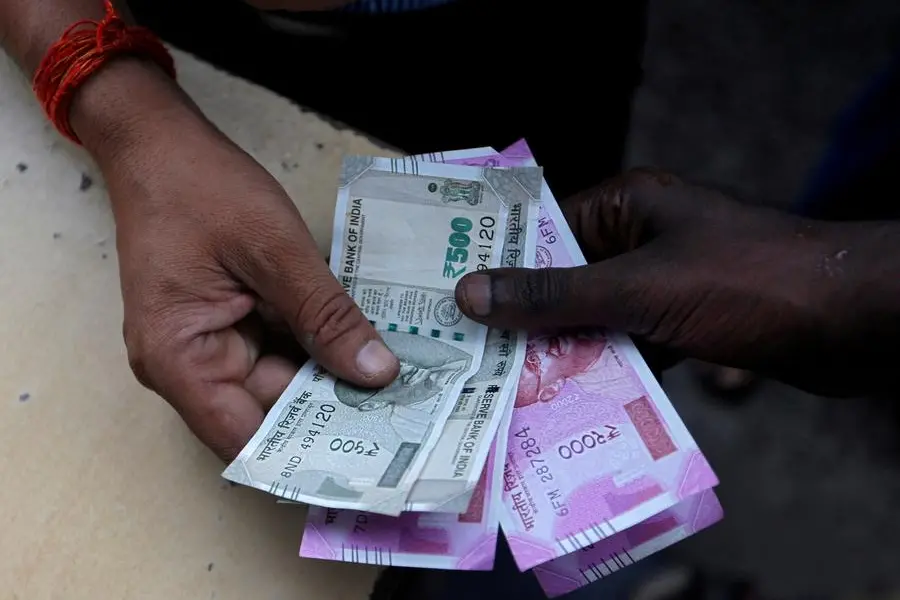PHOTO
JPMorgan's inclusion of Indian sovereign bonds in its flagship emerging market debt index will likely increase the volatility in capital flows and in the rupee, bankers said on Friday.
Indian bonds will be included in the JPMorgan's widely tracked emerging market index from June 28, 2024, extended over 10 months with 1% increment on its index weighting, the index provider said on Friday.
The inclusion is expected to spur staggered inflows of $22-$30 billion, analysts estimate.
"The inclusion will boost foreign ownership (of bonds) and it is decidedly positive for the rupee in terms of the initial flows", Sakshi Gupta, principal economist at HDFC Bank, said.
"However, beyond that, the opening of the bond market means higher volatility and vulnerability for the rupee over the medium term."
The capital flows that follow index inclusion are considered less stable. These flows are relatively less responsive to domestic fundamentals and news flow and are far more sensitive to global developments.
In times of high global uncertainty, investors tend to prefer safe haven assets like U.S. Treasuries and trim down allocations to the emerging markets.
With India soon to be part of a widely followed EM bond index, any exodus of foreign money from EM markets will have a knock-on impact.
"One thing to have the bonds included (is) you obviously get more forex but that will also mean a lot of volatility like we have seen in equities," said Madan Sabnavis, chief economist at Bank of Baroda.
"On the whole, there's a lot of good things that will happen but the Reserve Bank of India's role will increase in managing overall volatility."
The Indian rupee has in 2013 experienced the impact of a broad selloff in emerging market debt. Foreigners sold off local and other emerging market bonds on bets of tighter U.S. Federal Reserve policy, prompting the rupee to depreciate.
"The herd-mentality risk is higher when you open up your markets," a senior treasurer at a private bank said.
"The rupee will feel this the most when globally things become challenging." (Reporting by Nimesh Vora; Editing by Dhanya Ann Thoppil)





















